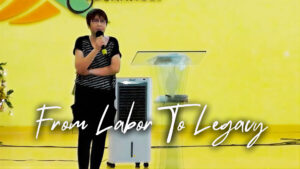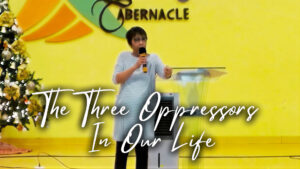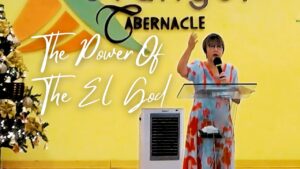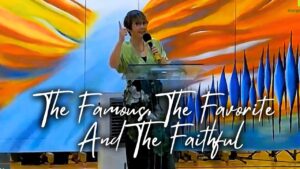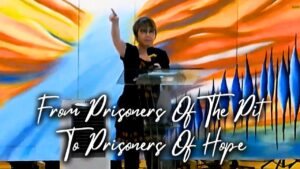Scripture Reading: Isaiah 30:1-7
‘Woe to the rebellious children, saith the LORD, that take counsel, but not of me; and that cover with a covering, but not of my spirit, that they may add sin to sin: That walk to go down into Egypt, and have not asked at my mouth; to strengthen themselves in the strength of Pharaoh, and to trust in the shadow of Egypt! Therefore shall the strength of Pharaoh be your shame, and the trust in the shadow of Egypt your confusion. For his princes were at Zoan, and his ambassadors came to Hanes. They were all ashamed of a people that could not profit them, nor be an help nor profit, but a shame, and also a reproach. The burden of the beasts of the south: into the land of trouble and anguish, from whence come the young and old lion, the viper and fiery flying serpent, they will carry their riches upon the shoulders of young asses, and their treasures upon the bunches of camels, to a people that shall not profit them. For the Egyptians shall help in vain, and to no purpose: therefore have I cried concerning this, Their strength is to sit still.’
The background of this chapter.
It is largely a local situation. And this local prophecy has been literally fulfilled. The Southern Kingdom of Judah heard and heeded the prophet’s warning and did not join with Egypt in order to be delivered from the Assyrian. The Northern Kingdom of Israel made the mistake of ignoring the prophet’s warning, and they went into Assyrian captivity. This is one time when the Southern Kingdom profited by the experience of the Northern Kingdom. But the Southern Kingdom too has a habit of making the same mistake. The bible says in Isaiah 39:1-2 ‘At that time Merodachbaladan, the son of Baladan, king of Babylon, sent letters and a present to Hezekiah: for he had heard that he had been sick, and was recovered. And Hezekiah was glad of them, and shewed them the house of his precious things, the silver, and the gold, and the spices, and the precious ointment, and all the house of his armor, and all that was found in his treasures: there was nothing in his house, nor in all his dominion, that Hezekiah shewed them not.’
When Merodach Baladan, the son of Baladan, king of Babylon, sent letters and presents to Hezekiah, for he has heard that he had been sick and was recovered, Hezekiah rejoiced with them and showed them the house of his precious things (the country’s wealth, its military might, showing that he was a worthy partner), hoping to forge an alliance against the Assyrian with them. Because of this the Prophet Isaiah prophesied that the Southern Kingdom will be exiled to Babylon. Merodach means ‘rebellious’. The name has dual implication. The King of Babylon is a rebellious people. The children of Israel are rebellious to seek help from a rebellious person. Baladan means ‘not of God.’ Again it has dual inference. The help of Baladan is not of God. What the people of God is doing is not of God. All throughout the scriptures Egypt is used as an analogy of the world or of the life apart from God and Zion is used to refer to the church or to a life with God. When we seek Egypt, we are rebellious and we are depending on something not of God. This is the most constant problem even of the church. Relying on human aid rather than the divine promises of YHWH is the crying sin of the Modern Church and the modern believers. What can we learn from this portion of scripture?
1. We are a Covenanted People
Isaiah 30 is a spiritual advice with a spiritual message. The advice is ‘Whom will you trust? God or Egypt? Decisions in life is always presented in a local situation. We must not make the mistake of ignoring God’s warning in order to be delivered from a circumstance. God comes in strongly with the troll ‘Woe’; the very first word in the first verse in the whole chapter. Maybe things are not working out the way you think they should. Maybe you and I would like to rearrange them. But God comes in and say, ‘Life will be much easier when we let God works things out rather than taking matter into our own hand.
Isaiah 30:1 says, “Woe to the rebellious children, saith the Lord, that take counsel, but not of me; and that cover with a covering, but not of my spirit, that they may add sin to sin:”
YHWH addresses his covenanted people. We are a people of covenant with God. Yet he lectures them as rebellious children. The phrase ‘rebellious children’ implies two truths:
a. They are ‘children’ (that is, descendants of Abraham, heir of the promise). We too are spiritual children of Abraham. So it is definitely addressed to us.
b. They act ‘rebelliously’. The basic meaning of the root word is ‘stubborn’. Another word is ‘obstinate’. It implies the stubborn mindedness of God’s people. Isn’t this so true of many of us? This attitude has characterized God’s people from ancient times until today. It is part of the curse of the Fall.
In every time of pressure and need we first fly to some form of human help. I confess that I make the same error again and again. I remembered I literally went back to Singapore (Egypt) to find work when we were left on our own. That experience was one of shame, lostness and God had to tell me in no uncertain term to come back to the Philippines. I also remembered that we approached a Singaporean Church whether they are interested to take over our church, because this church is financially on its own. And we have no faith that it can survive. We thank God we did not push through with the plan. Again that is going down to Egypt for help. I remembered we ask a certain church to salary us so we can be secured financially. We came out of that experience shamed and hurt. Pastor Lily was offered a job, a secured monthly salary. But God warned her against it. These are examples of trusting Egypt or going down to Egypt for help.
Why do we have such tendency? Our negative mindset says:
A. God Is far away and his help is not anything really practical
B. God does not heed. He is so largely concerned in the great affairs of the universe that it is only an imagination that he can take interest in an individual life
C. God takes too long and an impatient man like me cannot bear waiting. If I am in any trouble, I want to deal with it at once. Like the King of Israel who said to Elisha, ‘Why should I wait for the LORD any longer?’
D. God makes such hard terms. He always wants repentance and submission, and letting our own hands hang down; he crushes human energy and enterprise.
In our individual life and experience, we pin our faith to some sect-leader, some scientific teacher, some admired statesman, some popular preacher, some prophet, some assertive priest. Thousands of people find individual responsibility in religion too heavy a burden for them to bear, and do not grasp the truth that God is with them in the bearing, and that it is their dignity to stand under the yoke only with God.
We have a habit of planning and acting apart from God. I remembered clearly my younger daughter said one day, being tired of waiting on God for a boyfriend. She said, I paraphrase, I am taking matter into my own hand and I will be responsible for whatever consequences. Please don’t interfere. Well, she got to know this boy and she doesn’t want to know whether it is the will of God or not, just so long as he is handsome and steady in his career. She starting dating this man who is only a Christian by name and his interest is just in her and Jan has given up hope of finding a good Christian mate. After 5 months, well she finally came to her senses and cut of the relationship with this man, with so much pain and hurt knowing that this guy just isn’t a God-fearing man. Thank God that she has the gut to give him up. Then she starting to really depend on God. Today she is getting along with a boy that is a good Christian mate; a good boy and I think better than her.
For some of us, our Egypt is our work. Our work is an important part of our identity. We have a legitimate need to contribute and to feel competent. Too often, however, this legitimate need is distorted by a compulsion to work. We work and work and work because we want to prove ourselves. When our identity and value are primarily wrapped up in our productivity, it provides us with an appearance of strength. But this strength does not go deep – it is only a matter of appearances. All these at the expense of church services, our personal time with God, our attitude of dependence on God’s favor. The more we achieve or produce the more anxious we became. We wonder when it will all come crashing down. We wonder when we will be found out. Your work is your strength (Egypt) not God.
How about in moment of crisis, which is really the issue here in Isaiah chapter 30. Perhaps through trials and times in the wilderness of life, people start wanting to go back into Egypt (the world). In moments of crisis, where do you turn? To your friends? To your family? To your investment counselor? To yourself? The answer to that question will in large measure determine how well you handle the crisis. If you turn to yourself, you’ll find that you run out of wisdom and strength long before you run out of problem! Put your trust in other people and you will quickly learn their resources are just as limited as your own!
Notice that Isaiah was very specific on what they have done to be titled ‘rebellious children’:
They have devised their own plan to protect themselves
They made alliances with Egypt but ignored YHWH’s spirit (His presence, promise and protection).
They took counsel not of YHWH (they make plans but not YHWH’s). The living bible says, ‘they decide to do what I don’t want them to do.’ They had a covering but not of YHWH’s spirit. They had a protection but it is not God’s protection. And they continuously add sin to sin in their lives. Sin has a way of compounding itself. Once a person embark on the path to Egypt, one sin add to another. The covenanted people yoke themselves with unbelievers, putting up with sins. The phrase ‘add sin to sin’ point to a truth that it was not ignorance or misguided sincerity that they pile up sins but it was an opened-eyed rebellion of the covenant people. Abraham’s seed, his spiritual children trusted more in Egypt than YHWH. ‘Without consulting Me’ implies that they actually consulted some occult, medium, spiritism but not YHWH’s prophets. When you are sick, are you tempted to consult quack quack?
Another key characteristic of YHWH’s covenanted people is found in verse 2 which says, ‘That walk to go down into Egypt, and have not asked at my mouth; to strengthen themselves in the strength of Pharaoh, and to trust in the shadow of Egypt!”
YHWH says, ‘woe to those seeking help from Egypt.’ The covenanted people trusted in the shadows (shade) of Egypt. They literally took refuge or shelter in the shadow of Egypt. Shadow is a metaphor for protection and care. Shadow is a Hebraic idiom. What does the bible say about shadow?
a. ‘Shadow’ as protection of YHWH or Egypt or YHWH’s Messiah. So it means that instead of obtaining protection from YHWH or Jesus Christ as Savior, they seek protection from Egypt.
b. ‘Shadow of the hand’. This is also YHWH’s protection
c. ‘Shadow of my roof’. This is another idiom for protection. YHWH’s protecting the roof of my house. Who is protecting the roof of your house? God or Egypt? The roof of your house is all the people living in your physical home.
d. ‘Shadow of YHWH’s special cloud’ during the wilderness wandering period. That is YHWH provide shade by day, light by night; guiding them.
e. ‘Shadow of the wing’ is a Hebrew idiom of God as mother bird.
f. ‘Shadow of a tree’ providing shade. Shade is a powerful lifesaving metaphor for desert people.
I went into detail in this is because YHWH doesn’t want us to make alliances with Egypt to strengthen our position in life. Isaiah’s critique of that plan is focused on the people’s failure to seek YHWH’s counsel on matters before carrying out their own plans. They looked for human help instead of relying on God. Only God should have been consulted before they decided which path to take in life. ‘They did not ask of my mouth’ is an ancient Near East phrase. It was customary to seek guidance of a deity in matters of magnitude. The covenant people’s failure to ask for YHWH’s guidance reflects a dangerous level of pride and self-sufficiency.
2. Shame
Isaiah 30:3 says, ‘Therefore shall the strength of Pharaoh be your shame, and the trust in the shadow of Egypt your confusion.”
The strength of Pharaoh shall be your shame. The shadow of Egypt (Egypt’s care and protection) shall be your confusion. While preparing this sermon, I am warned not to align myself again with a previous task master. I must even be careful of supposedly Christian from previous members of my ex-church. We all know that Egypt represents the world. Egypt also represents sin. The world is a place of sin. My previous ex-church is from Singapore. It is so interesting that the short form for Singapore is Sin. I must be especially careful when aligning with people from Singapore. I have to seek counsel when they ask to align with me. We were so foolish that at one time, because of financial handicap, we wanted to pass this church to AGAPE church and that is aligning ourselves with Egypt. The problem with Judah was once upon a time, they were slaves in Egypt and now she is leaving her covenant God for the protection of a previous task master. Judah did it again in Jeremiah’s day. It is even wrong to pass this church to our ex-church because YHWH would not allow it. We have a tendency to turn to Egypt when we are financially hard strip.
Isaiah 30:4 says, ‘For her princes were at Zoan, and his ambassadors came to Hanes.’.
These were two cities that showed the power of the Egyptian army. Please understand that our Egypt always look formidable and powerful in our eyes and even the eyes of the world. The two cities mentioned were connected to the delta region of the Nile. Firstly Zoan is known as Tanis or Avaris. Secondly Hanes is possibly connected to Tahpanhes, a nearby fortress. Some scholars relate this name to Heracleopolis Magna because it was a regional capital during the Nubian Dynasty. The meaning is Egypt look so formidable, so wealthy and sufficient.
The result of our alliance is always shame. Isaiah 30:5 says, ‘They were all ashamed of a people that could not profit them, nor be an help or nor, but a shame, and also a reproach.’ They is no hope in Egypt. Instead they will be ashamed. They will regret because Egypt will be unprofitable and disappointing.
I want to go into a little detail on shame because of the danger of aligning ourselves with Egypt. Shame is a strong word. ‘Shame’ denotes the judgment of God on sin. What is shame? It is fear, guilt and a sense of disfellowship with YHWH. It will cause you to stink. Shame is associated with judgment. Shame is not just injury to one’s reputation or pride, but a serious violation of covenant requirements and loss of fellowship with God. It is often used of idolaters. For people of the antediluvian period (before the flood), ‘shame’ was a horrible condition. It affected the core of one’s being. On the other hand the great promise of no shame for those who put their trust in YHWH is found repeatedly in the Old Testament and the New Testament. Those who opposed the Gospel will have their glory turned to shame. The Gospel or good news is actually putting your faith in Jesus Christ. The ‘cross of Christ’ is called a shame’. When Christ died on the Cross of Calvary, he took that shame of us and nailed it to the Cross and turn us into a glory.
Brothers and Sisters, Egypt always gave us the appearance of being able to protect us, but they had little influence. Read this verse carefully, Isaiah 30:6 says, ‘“The burden of the beasts of the south: into the land of trouble and anguish, from whence come the young and old lion, the viper and fiery flying serpent, they will carry their riches upon the shoulders of young asses, and their treasures upon the bunches of camels, to a people that shall not profit them.” The covenanted people that trust in Egypt, carry their wealth to Egypt (a people) that shall not profit them. Egypt’s help shall be in vain and with no purpose. Verse 6 mentions ‘beasts’ that will be found on the way to Egypt. Notice the beasts of the Negev is listed.
A. Lioness
B. Lion
C. Viper
D. Flying serpent
E. Donkeys
F. Camels
These speaks of the danger of the path to Egypt. Even before you reach Egypt, the path there is already treacherous. Egypt here also means Rahab. We know from bible that Rahab is the name of a sea-demon and is applied to Egypt. Actually in some translation, the word ‘Rahab’ is used. Let me quote some of these translations; ‘Rahab-the collapsed, Rahab subdued.’ The point is that Egypt (Rahab) cannot stop or even help. The serpent is toothless. Egypt is toothless. Isaiah 30:7 is so clear, ‘The Egyptians shall help in vain and to no purpose. No wonder Isaiah felt sorry for the donkeys that will carry the treasure of Judah down to Egypt. Despite the riches that the pack animals bring across the desert, Egypt will not help Judah at all. So one could call Egypt, ‘Rahab-Hem-Shebeth’ which means ‘Rahab sits idle’ or ‘Rahab the do-nothing’. Rahab will sit idle to your desperation for help. Rahab will do nothing to help. We need to understand the danger of trusting in Egypt. The noun ‘Rahab’ indicates ferocity, haughtiness, boasting, insolence; and the name was doubtless given to Egypt on account of its insolence and pride.
3. Strength to Sit Still
Isaiah 30:7 says, ‘therefore have I cried concerning this, their strength is to sit still.’
I know that this verse implies that Egypt’s boasted strength will be one of absolute inaction. They can do nothing for you. But for us, what God wants us to do is to have the strength to sit still. What YHWH wants is ‘it is safer and better for you to sit quietly at home, seeking to me for help.’ It is often the fault or folly of us as believers, that when troubled by neighbors on one side, we sought succor (help) from the other side, instead of looking up to God. And we cannot avoid the dreadful consequences of adding sin to sin. We have to learn to make the righteousness of Christ our refuge, and seek the sanctification of the Holy Spirit. We are always prone to lean in our own understandings, but this will end in shame and misery. We just would not trust in God. We took much pain to gain the help of Egyptians. Our riches spent on them turned into bad account. See what dangers we run into who forsake God to follow our own confidences. Our creator is the Rock of ages, we the creature, a broken reed. Our strength is to sit still, in humble dependence upon God and his goodness, and quiet submission to his will.
I read something that is so beautiful about God concerning us. He says in Isaiah 42:3 ‘A bruised reed shall he not break, and the smoking flax shall he not quench: he shall bring forth judgment unto truth’. The nature of God is so beautifully exposited here. ‘A bruised reed and a diming burning wick’ totally describes many of us. But here YHWH declares himself and says his ministry is a ministry of compassion, understanding, and patience to those who have somehow been wounded and stressed. Isn’t this the totality of Jesus ministry? It is said that Jesus’s ministry is ‘he shall not cry, nor lift up, nor cause his voice to be heard in the street.’ He is more on action than his voice. He will not draw attention to himself. Yet He still will bring judgment unto truth. It means that he will give full justice to those that has been wrong. He will not oppress you that has been beaten down and weakened. He cares for the weak and poor. He is telling you that He will give you justice. He will not fail; He will not be easily discouraged until the set justice in your life. He won’t be satisfied until truth and righteousness prevail. I read something this morning. Isaiah 46:4 says, ‘I will be your God throughout all your lifetime, yes, even when your hair is white with age. I made you and I will care for you; I will carry you along and be your Savior.’ YHWH is a covenant loyalty God. One of the hallmarks of Jesus is to establish truth in the land. He will restore the image of God that has been damaged. We need to restore the right image of God.
